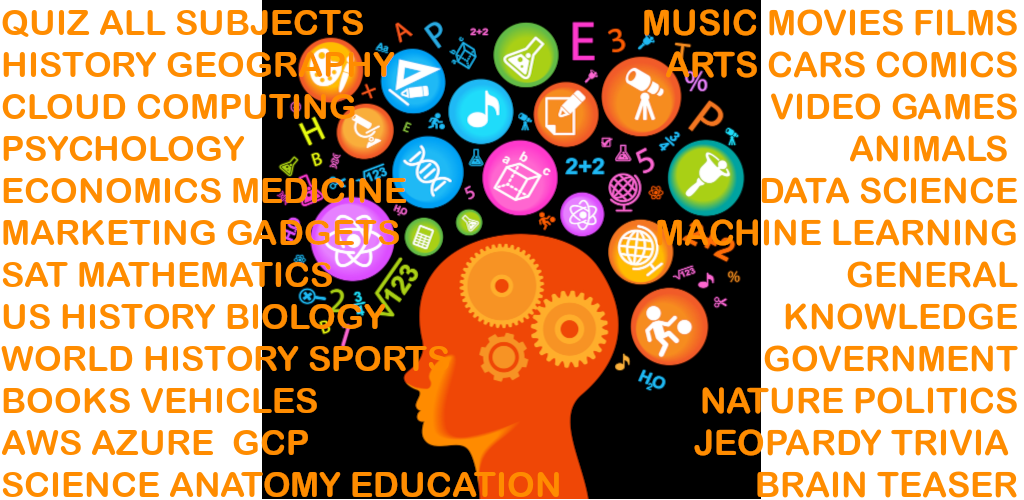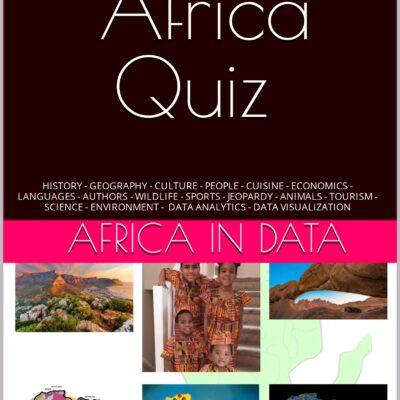What are the top 100 Free IQ Test Questions and Answers – Train and Elevate Your Brain
An Intelligence Quotient or “IQ” is a score derived from one of several standardized tests designed to assess human intelligence. The term “IQ” was coined by William Stern in 1912 as a proposed method of scoring children’s performance on the new Binet-Simon intelligence scale.
Ever since, there has been much debate over what exactly IQ tests measure, how accurate and reliable they are, and what purpose they serve. However, there is no denying that IQ scores can have major implications for an individual’s life chances, including their educational opportunities and career prospects.

IQ tests are often used for selecting students for gifted and talented programs or for entrance into schools for the intellectually gifted. They may also be used to identify individuals who are at risk of developmental delays or learning disabilities. In some cases, IQ scores are used to predict job performance or to screen job applicants.
- The first Mensa IQ test is called the Culture Fair Intelligence Test, or CFIT. This test is designed to minimize the influence of cultural biases on a person’s score. The CFIT is made up of four subtests, each of which measures a different type of cognitive ability.
- The second Mensa IQ test is called the Stanford-Binet Intelligence Scale, or SBIS. The SBIS is a revision of an earlier intelligence test that was used by the US military to screen recruits during World War I. Today, the SBIS is commonly used to diagnose learning disabilities in children.
- The third Mensa IQ test is called the Universal Nonverbal Intelligence Test, or UNIT. As its name suggests, the UNIT is a nonverbal intelligence test that can be administered to people of all ages, regardless of their native language.
- The fourth and final Mensa IQ test is called the Wright Scale of Human Ability, or WSHA. The WSHA was developed by William Herschel Wright, a British psychologist who also served as the first president of Mensa International. Like the other tests on this list, the WSHA consists of four subtests that measure different aspects of cognitive ability.
Below are the top 100 Free IQ Test Questions and Answers From Mensa:


































What do IQ Tests Measure?
Broadly speaking, IQ tests measure an individual’s capacity for logical reasoning, problem-solving, and abstract thought. They usually involve a mixture of verbal and nonverbal questions and tasks. Standardized IQ tests often yield a bell-shaped distribution of scores with a mean of 100 and a standard deviation of 15. This means that the vast majority of people score between 85 and 115. Scores below 70 are generally considered to represent intellectual disability, while scores above 130 are considered to represent exceptional intelligence.
How Accurate and Reliable are IQ Tests?
The accuracy and reliability of IQ tests have long been debated by researchers and psychologists. Some argue that IQ tests are an unfair measure of intelligence because they often favor those with higher socioeconomic status or who speak English as their first language. Others argue that the test items on IQ tests often tap into culturally biased knowledge, such as knowledge of famous people or classical music.
IQ tests also tend to yield lower scores for certain groups, including women, ethnic minorities, and people from lower socio-economic backgrounds. This has led some to suggest that IQ tests may be biased against certain groups. However, it is important to keep in mind that all standardized tests have some degree of bias built into them. For example, a test designed to assess knowledge of American history will necessarily be biased against people from other countries who have not had the same exposure to American history. This does not mean that the test is invalid or unreliable; it simply means that the test is not measuring something that is equally important for everyone in the world.
Conclusion:
There is no denying that IQ scores can have major implications for an individual’s life chances, including their educational opportunities and career prospects. However, there is still much debate over what exactly IQ tests measure and how accurate and reliable they are. Because of this debate, it is important to consider IQ scores within the context of other factors when making decisions about someone’s ability or potential.
There are four main Mensa IQ tests: the Culture Fair Intelligence Test (CFIT), the Stanford-Binet Intelligence Scale (SBIS), the Universal Nonverbal Intelligence Test (UNIT), and the Wright Scale of Human Ability (WSHA). Each test assesses different aspects of cognitive ability, and all four tests are used to screen candidates for membership in Mensa International, an organization for people with high intelligence quotients. Thanks for reading!
What would be an example of an IQ question that only someone with an IQ of 135+ could answer?
The questions in the online tests seems to be more difficult close to the end. The question below is the last question in the online test from Mensa Norge that claims to measure up to IQ 145. Thus, the last question should only be possible to solve for people close to IQ 145, or that knows the logic of the question.
Do high IQ people find it hard to understand easy concepts somehow?
High IQ friend of mine: Makes a very high 6 figure salary coding
Also him: Doesn’t know how to open a milk carton
(The carton didn’t have the ‘lift n peel’ thing, it was plain transparent blue plastic)
He’s super smart, but the thing with the milk carton is that he’s not used to this kind of problem.
The solution is to look where to apply force and how to apply it.
But the kind of solution he’s used to making is: Find a way to make this super complicated massive piece of code work again.
Physical world problem vs hard logical problem (that you only ever envision in your head)
Another thing might be that he’s so used to complicated problems perhaps he thought there was more to it.
Or maybe he just never saw it before (but even then it’s not hard to figure out)
What are the most effective ways to improve emotional intelligence?
Emotional intelligence is about the ability to control, Recognize, express your emotions, and handle your interpersonal connections with empathy and sensibility. There are many ways to improve emotional intelligence such as.
- Increasing Self-Awareness
- Observing your feeling
- Pay attention to your behaviour
- Question your opinions
- Look at yourself objectively
- Know your emotional triggers
- Understand the links between people’s emotions and behaviour
- Read literature to improve Empathy
- Try Empathize with Yourself and Others
- Ask for feedback
- Dancing, Singing, Crying, Laughter, Listening, taking care of someone or something like the elderly or a pet , plant, gardening became a hobby of mine after house plants thrived, fairy gardens, rock gardens
What is a sign of high intelligence that not many people know about?
A sign of intelligence few people know about is having a tough time understanding a question you’re being asked.
Why is that?
It’s because people with very high IQs have many meanings coming to their mind when their hear a word or a phrase.
For example, if someone asks “What do you do?” these high IQ people are likely to wonder whether they are being asked what kind of a job they do or what kind of hobbies they have, or how they would react under certain circumstances…
This need for constant precision is always present at a high IQ level, whereas for people of average IQs the most obvious and common meaning always comes to mind.
So, while not being able to understand a simple question is seen as a form of stupidity by many, it may actually be a sign of higher intelligence.
Lovecky, Deirdre V. (1994): Exceptionally Gifted Children: Different Minds. Roeper Review Vol.17 n°2.
What is a fake sign of intelligence?
I would say when a person feels the need to speak on every subject.
Or, just being overly talkative in general. I find that some people just like to hear themselves talk, and think that them blabbing non-stop makes them sound smart.
You generally know this is the case when they spend 20 minutes explaining something that should have only taken 30 seconds.
There were two competing awards in my high school yearbook.
- Talks most, says least.
- Talks least, says most.
It should be obvious which of those two you would want to be. There is virtue in knowing when not to talk, and just listen.
Is it possible to have a high IQ and score low on an IQ test?
I would say a person with a high IQ could have a bad day and score less than her best but it would still be far from a low score. Someone who scores low on an IQ test might have done better another day, but could never score high.
What do high IQ people think of normal IQ people?
Normal IQ people rely on the volume of ideas they can understand to arrive at their own opinions. It is much easier to evaluate an idea than it is coming up with one of equal value, as a result normal IQ people gain a significant benefit from making their opinions a collage of what they evaluated as best. This provides a series of practical advantages to the normal IQ person that no longer has to rely on his bad ideas but can supplant them for the good ones of somebody else, but also gives them a number of quirks. From the perspective of very high IQ people, normal IQ people are much more consistent performers than they are, as though their opinions in isolation are all average opinions of somebody 1.5 SD above them, but have a set of opinions that looks like the monstrous chimera of someone with multiple personalities. If an high IQ person has a standard distribution of quality for his opinions ranging around his IQ, the normal IQ person has a much smaller range of opinions all of higher quality than average but patched together in such a way as to appear incomprehensible how one could champion them all. This is the main reason of the communication range, we expect your opinions to have implications for your other opinions that quite simply aren’t there. From the perspective of high IQ people normal IQ people constantly try to have their cake and eat it too.
Which professions/fields of study can a person with an IQ between 130 and 140 (but average drive) be successful in? Which should he stay away from?
You will probably get an answer from one of the usual suspects posting his favorite career-to-IQ chart, which omits so much crucial data that it can only be surmised that those who promote usage of it are doing so to manipulate opinion.
The graphic I’m going to post under this text is much better because it shows a range of IQs that actual people doing actual jobs have. From it you can see that some janitors have the same IQ as some doctors. So you should seek a career in doing whatever you would like to do. You are much more likely to succeed in something you want to do than something you don’t want to do, regardless of your IQ.
Is there a connection between high IQ and low spatial intelligence?
Not necessarily. While there is some positive correlation with high spatial intelligence (the standard IQ test includes a number of questions related to spatial intelligence), it is far from absolute. My mother is quite likely the smartest person currently living in New York City and has virtually zero spatial intelligence. Conversely, there are loadmasters and packing experts who have unbelievable spatial intelligence but only average IQs.
Albert Einstein is gone, and Stephen Hawking is gone. Who is the next genius?
If we had to pick an existing genius who has a gravitational impact on any research project he (or she) touches, I would venture a guess that a lot of people would pick Terence Tao (mathematician), an Australian mathematician working out of UCLA. Not only has he been a prolific theorist, he also been a major public figure and communicator of math. He is considered an once in a generation type of talent and we won’t truly fully realize his impact for another few decades once people start applying his findings. That said, his work on compressed sensing is already having implications on sensor theory.
How difficult is the Mensa test?
Mensa Singapore uses the Raven’s Advanced Progressive Matrices (RAPM). I sat for the test around a year-and-a-half ago and was accepted into Mensa.
Each question consisted of a 3-by-3 matrix of some black-and-white figures with an underlying pattern. The space at the bottom left corner was blank and I had to choose one out of eight options to complete the pattern. Here’s a picture I found on Google which illustrates the question format:
Since the RAPM tests only non-verbal reasoning ability, you do not need to have any content knowledge to do the questions. However, you do need to have a good working memory, as we were not allowed to make any markings on the diagrams in the question paper.
I remember finishing the test 20 minutes early. There was only one particular question towards the end which I found difficult.
All in all, it’s nothing to worry about; I’m sure that even a sharp 12-year-old could do the test!
What is the difference between people with IQ 145 and people with an IQ of 190?
The usual caveat first, IQ is problematic and widely misunderstood. Almost everyone you ever meet has an IQ between about 80–120. Including the big CEOs and billionaires, politicians and teachers, leaders and successful people in general.
An IQ of 144 or so are borderline being too smart to actually function in society. They’re the serious nerds, the high functioning autistics, and can be the real problem solvers – if they are given a chance and not overlooked because they are socially inept or don’t think about the same things everyone around them does. They might have trouble just keeping a job or a relationship, or getting one that recognizes their intelligence and finds a way to put them to use.
This is already your crème de la crème, the top 1/6th of 1% or so. Honors students at national research universities, National Merit Scholars, and people whose college admissions were more competitive than Mensa, etc.
An IQ of 190 doesn’t practically exist. The occasional rare genius might get labelled with a number this high, but it’s meaningless at this point. This is the territory of DaVinci, Copernicus, Curie, Galileo, Einstein, Aquinas, etc.
What is the most interesting IQ study ever done?
In 1969, UCLA psychologist Dr. Robert Rosenthal did an IQ experiment.
He met with two grade-school teachers. He gave them a list of names from their new student body (20% of the class). He said that each person on that list had taken a special test and would emerge as highly intelligent within the next 12 months.
In reality, those students were chosen totally at random. As a group, they were of average intelligence.
The incredible finding is that, when they tested those children near the end of the year, each demonstrated significant increases in their IQ scores.
So what happened? Why?
The teacher’s own behavior towards those students affected the outcomes.
They gave the fake-talented students more attention. When one raised their hand to answer a question, the teacher often followed up to get better clarification. The teachers were more positive and encouraging to those students.
Meanwhile, the teacher was much shorter with students they deemed subpar. Rosenthal speculated the teacher figured the student might be dumb, so why go the extra mile?
Dr. Rosenthal said, “When we expect certain behaviors of others, we are likely to act in ways that make the expected behavior more likely to occur.”
The opposite of the Pygmalion effect is the Golem Effect; it occurs when our negative expectations generate negative results. This is partly why internalizing stereotypes is damaging.
What can we learn from these effects? Two things.
The first thing
The children in Rosenthal’s study began to internalize the belief that they were special. They bought into the idea, “I am smart so I can do this.”
Their self-efficacy grew and evolved and they stopped indulging in self-limiting beliefs.
The act of believing something to be true can impact every aspect of our life. For example, OK Cupid’s founder, Christian Rudder, did a Pygmalion experiment with online dating.
Researchers lied to users. They reversed the matching algorithm on a select group of singles, pairing them with people who were objectively incompatible. And told them they were high probability matches.
Because the participants believed they had chemistry, they messaged each other and began flirting. They were friendlier and gave each other a shot. Some ended up together.
And now, somewhere out there, someone is banging their nemesis.
We position ourselves to thrive by surrounding ourselves with people who believe in us and hold us to a high standard.
This is why toxic people have such a devastating effect on your life.
The second: Become your own teacher or mentor
Think about a good boss versus a bad boss.
A good boss knows how to communicate and holds you to high but reasonable expectations. They give you useful feedback rather than waiting for you to make a mistake and scold you.
A bad boss does the opposite of those things.
Being an effective mentor to yourself comes down to having a growth mindset.
Someone with a fixed mindset thinks their identity is pre-determined.
They are often self-defeating.
“What’s the point. I’m stupid.”
“I’m too lazy to get in shape.”
“Nobody in my family is successful so I won’t be.”
People with a growth mindset dismiss these things. They are persistent.
They choose to march forward and keep fighting. They stay defiant in the face of difficult odds. They don’t seek out reasons they can’t win.
And they are often the most successful people in the world.
The good news? The fact that you are here reading this self-help article suggests you are likely of a growth mindset.
The takeaway is simple
- Surround yourself with great people who hold you to a high but reasonable standard.
- Treat yourself like another person who you are responsible for. Treat yourself like that student who is talented.
- Have the courage to believe in yourself even if nobody else does. Become a prophet of your own success.
For a person with an IQ of 140, is speaking to normal people (IQ 100) comparable to how normal people feel when speaking to someone w/ an IQ of 60?
Not even close. It doesn’t work that way.
A person with an intelligence quotient of 60 can barely function and complete everyday mundane tasks like using a smartphone to access Quora.
An IQ of 60 is found at the opposite end of 140 on the intelligence spectrum and is present in less than 1% of the population.
There are plenty of average IQ individuals that are well studied, well-spoken and quite interesting.
That said, filling your head with a plethora of information and factoids doesn’t make you knowledgeable. “Knowing” comes in degrees and varieties of quality and there’s quite a hop forward between “smart” and “brilliant.”
The major difference between normies and people in the high IQ range considered gifted/genius is their capacity to think. Not ability but, capacity. There’s a difference…
Your ability to think is more of a philosophical matter and intellectual skill—at least, fundamentally. You can be taught how to think by an intelligent and wise person. And hey, if you ever find such an opportunity, take it, because very few people walking around are privileged with this type of mentorship.
That said, the brain of a genius still has it easier when it comes to the ability to think as well. For instance, I didn’t need a PhD to develop the same ability for thought as say, your college professor.
The fundamental ability is innate. I was born with it and my capacity for it is greater.
Still, the major difference is capacity.
Chances are, if you find yourself listening to, or talking to someone with profound insight and, well, brilliant ideas, that person is likely in that top 1%.
But on both sides of that interaction, there’s a give and take that is enjoyable for both parties.
A normie trying to converse and partake in an exchange of ideas with the unfortunate soul that has a 60 IQ wouldn’t be much of an interaction. It would be pretty one sided.
A normie and a 140 plus is game on and pretty fun—especially if the normie is educated and smart.
What math, physics, or logic problems can I solve to make some quick prize money?
The Coin Toss Problem
Here’s the puzzle/problem:
Let’s presume we are best friends. I live in the house next to you. I make a gaming proposition along the following lines:
You throw a coin over and over again. So long as it comes up heads, you keep throwing. When it comes up tails you stop and I pay you $$$ — depending on how many heads you threw.
If you threw a tails to start, you get $0.
If you threw a heads then a tails, you get $1.
If you threw 2 heads then a tails, you get $2.
If you threw 3 heads, you get $4.
If you threw 4 heads, you get $8.
If you threw 5 heads, you get $16.
And on and on. The payoff doubles every time you add an extra heads.
Since this game consists entirely of me giving you money (from $0 to $??) — you will have to buy an “entry” —
How much will you pay me to play this game? — *Once.*
If you can solve this problem (and it has a solution) — you are well on your way to an early retirement.
This puzzle came up at the Physics Department Christmas Party at Stanford University in 1984.* I was the first to solve it. It took me about 24hours of passive playful pondering. I was 23.
But you were asking about money? Ok, I retired at age 33, only 37 months after I began work. Coincidence?? — Not entirely. (That story is here.)
This is a *difficult* puzzle.
Hopefully you will understand it.
Hopefully it will inspire you.
By w.w. Lenzo
Solution hints to Coin Toss Problem:
AFTER 765 DAYS: the question has been viewed 20,000 times inspiring only 71 answer attempts. We have SIX CORRECT RESPONSES! (see below)
Fifty-two answers were just guesses from people who clearly did not understand the problem. One person ran a test, collecting data. Only nineteen came from people who could perceive the infinity hidden within the puzzle — so let’s imagine they have an IQ>130.
Eleven of those nineteen made an effort to crack the paradox and six have so far done so correctly.
First Prize Goes To —
* * * Peter Barnett! * * *
* * * Nat Han! * * *
* * * Davide Checchia! * * *
* * * Io Scapula! * * *
* * * Angus Sullivan! * * *
* * * Erik Rådbo! * * *
The Turning Cards Problem:
I have a stack of 100 index cards. On each card is written a unique number. Each number can be positive or negative, whole or fractional, rational or irrational (like pi). Each number is real and unique.
These cards are placed in a huge bag and tumbled around until they are thoroughly randomized. Your job is to find the card with the highest number on it. The challenge is: You are only allowed to look at the cards one at a time. You must toss away the card in your hand before you can draw another card from the sack. In order to win you must say “stop!” at exactly the moment you are holding the highest card. You can never go back to an earlier card.
What is your optimum strategy?
What chance does that strategy give you to win this game?
What would your chance be if the stack had 1 million unique cards?
Finally (as though that weren’t enough) — suppose there were 1 million cards, but the winning condition is now to find either the highest card -or- the 2nd-highest card. How does that change your tactics? What now is your chance to win?
Clue: the answer to the last question is you have a 58% chance to end up with one of the two highest cards in a deck of 1 million cards!! (if you use optimal technique). Wow!!
Now, if that doesn’t inspire you, you’re not really alive to what’s going on here.
This second question/puzzle is interesting because it models a real-world problem that we face all the time — coming-to-terms with an unknown situation and making effective choices.
- How do we finally settle on a husband or wife?
- How do we choose which house to buy?
- How to pick a career? Or a philosophy?
Remember: 58% is possible on a million cards!! — Now think!! —
AFTER 650 DAYS: this question has been studied (approx) 24,000 times inspiring only 10 answer attempts. We have TWO ANSWERS which are 95% CORRECT!!—
First Prize (Almost) Goes To —
* * * Zijin Cui * * * — a college student —
* * * Bernard Cook * * * — an anesthesiologist —
Woo! Hoo! — Congratulations!!
Zijin solved the problem using good intuition and an unusual statistical approach. Yes, this is a stats problem disguising itself as a math puzzle.
Bernard solved my harder 58%-version by fearlessly applying combinatorics and Stirling’s approximation to zero-in on the correct answer. He took the bull by the horns and deftly flipped it belly-up. Kudos!!
Nonetheless, I am still hoping for somebody to solve both problems in closed-form (for an arbitrary number of cards).
Since nobody seems able, I will give a huge hint:
You have to use all the obvious variables PLUS you must invent a non-obvious variable to create an expression for the probability of winning. The calculation requires solving a double integral. One of these integrations is across the non-obvious variable, which then disappears entirely from the calculation & the solution.
Haselbauer-Dickheiser Test
This test is known as the Haselbauer-Dickheiser test for exceptional intelligence.
The question source is: The Most Difficult IQ Test in the World
Source of 25 above images: The Most Difficult IQ Test in the World
Some possible answers:
- October 2018 – Dimitrios Kalemis
- November 2018 – Dimitrios Kalemis
- December 2018 – Dimitrios Kalemis
- January 2019 – Dimitrios Kalemis
- Sources: http://matrix67.com/iqtest/
BONUS QUESTION
Really stretch the ol’ brain a bit, loosen the cobwebs:
- What is existence made of, at the smallest scale?
Mathematic/Arithmetic Problems:
What is ‘epicness’ in artistic mediums?
“A feeling of ‘epicness’ occurs when someone who has been habituated to perceive a piece of art at one scale suddenly must perceive that piece of art at a different scale, and realizes that they had the option to perceive it in that way the entire time. ‘Scale’ refers to effective size of interactions; for example: ‘nano’, ‘human’, or ‘planetary’ scales.” Given this is true, explain how the concept of “sometimes what you were looking for was right under your nose the whole time” can result in a feeling of ‘epicness’. Describe a situation where that concept would not result in a feeling of epicness. Describe an addition to that situation that makes it feel epic. By Elliott Kelley (IQ: 190)https://www.quora.com/profile/Elliott-Kelley
How do geniuses and people with high IQ (above 180) solve problems in real life and very hard questions in an IQ test?
A few traits of the profoundly gifted include divergent thinking (different ways of considering the problem and its possible solutions–think back to spontaneous challenges in Odyssey of the Mind from grade school), thinking in analogies such that information is interconnected (so, math and music and sociology concepts may be linked in memory), and projection into the problem (such that someone literally is walking through a mental representation of the problem as if he/she were the problem). Complex material is quite simple because of these traits, but simple problems become a bit of an overload, as the question-makers aren’t anticipating interconnection of material or divergent solutions. Combining multiple steps into a single step is also common (holistic learning).
This allows profoundly gifted individuals to intuit solutions to material they may not explicitly know or have seen before (such as math included on the SAT taken prior to junior high). For references on this, see here: https://www.slideshare.net/ColleenFarrelly/understanding-the-profoundly-gifted
As an example, take a writer who is imaging a scene with several characters. She might close her eyes and imagine the scene involving those characters and then imagine herself as that particular character. Doing this for each step of the scene allows her to intuit how each character would respond to the situation and to each other, along with allowing her to mentally visualize the scene unfolding. In this manner, she simply records what she sees in her mind’s eye.
What is a person with IQ between 150 & 160 like?
I’m going to go anonymous on this because I don’t usually talk about my IQ to anyone.
- Finding meaningful conversation is seriously hard since I feel that people don’t always understand what I’m saying unless they happen to be an expert on said subject.
- Thus, I find it hard to symphatize with other people since their worldview is vastly different.
- I have been clinically depressed when I was younger since I couldn’t adapt to norms.
- I have never cared and never will care about societal norms.
- I’m social and have huge social circles but only few friends.
- School was never hard for me but I never got great grades since I got bored and lazy about school. It never gave me anything new or exiting to research.
- I often got in trouble at school for talking against teachers because I knew they were wrong and got offended when corrected.
- I have always absolutely loved all science and I’m fascinated about almost any subject you can humanly think of.
- I hate people who feel superior solely based on their IQ. Critical thinking, expertise and hard work will earn my respect, not your IQ. This is why I’m not part of Mensa.
- I would really like to meet someone with substantially higher IQ than mine.
- When people challenge in constructive way and argument their points very well I feel like I’m in heaven. It’s truly great though rare.
- Short fuse has always been my problem and I’m learning to control it.
- I despise irrational thinking.
- But love facts.
- Find it funny when people try to “teach” me things that aren’t true or at least largely untrue as facts.
- I’m blunt and don’t usually sugarcoat things.
- I find dating extremely hard since I get easily bored (my current partner is an exception to this rule).
Bottom line is that I try to get by and help people as much as I can and be understanding. Slowing down for others is often frustrating but I feel like I’m getting so much out of this that I wouldn’t trade my life for anyone else. By the Author
Who has the highest recorded IQ of all time?
Top 10 highest recorded IQs of all time
10. Stephen Hawking IQ-154
9. Albert Einstein IQ 160–190
8. Judit Polgar IQ-170

7. Leonardo Da Vinci IQ 180–190

6. Richard Rosner IQ-192

5. Gary Kasparov IQ-194

4. Kim Ung Yong IQ-210
3. Christopher Hirata IQ-225

2. Terence Tao IQ 225–230

1.William James Sidis IQ 250–300

In 1899, at age one, Sidis could already confidently read The New York Times by himself. At age eight, he was fluent in eight different languages (Armenian, French, German, Greek, Hebrew, Latin, Russian and Turkish) and had invented one for himself called ‘Vendergood’.
Sidis set the world record in 1909 for the youngest enrolment in Harvard University—he was 11 years old—studying advanced mathematics.
Yet Sidis’ memories of this time were far from happy. His biographer, Amy Wallace, claimed that,
“He had been made a laughing stock [. . .] he admitted he had never kissed a girl. He was teased and chased [. . .] and all he wanted was to be away from academia [and] be a regular working man.” [1]
If that wasn’t already enough, news reporters frequently followed Sidis around campus, seeking to sensationalise his story.
It is considered that Sidis’ IQ fell somewhere between 250 and 300 (Einstein’s IQ was estimated at 160). [2]
After graduating Harvard at 16, Sidis worked a brief stint as a mathematics professor at Rice University (Houston, TX). He resigned shortly after, however, because he was harassed by journalists everywhere he went. He claimed,
“I want to live a perfect life. The only way to live a perfect life is to live in isolation.” [3]
And that he did. Following his resignation, Sidis went into hiding, moving from city to city, working minimum wage jobs to earn his keep. During this time, he wrote a vast number of books in subjects ranging from modern history to mathematics.
In 1919, he was arrested for his coordination of a number of communist rallies and sentenced to 18 months in prison. After his release from prison, he isolated himself in his apartment in Boston. He was determined to finally live an independent and private life, becoming estranged from his own parents in the process.
It was there that he lived out the rest of his days. Isolated and, for the most part, completely alone until his death in 1944.
It seems all Sidis ever wanted was to lead a ‘normal life’. And he was, most certainly, cursed with one incredibly remarkable mind.
Edit: I think it’s absolutely hilarious you guys have all this information worth contesting about this guy, and all you care about is the brief mention of “communist rallies”.
Footnotes
Reference: Mensa Norway
IQ Q&A:
How will the world look like when AI GPT models reach 1600 IQ?
Mo Gawdat, former Chief Business Officer of Google [X] predicts that AI will evolve from this year’s 155 IQ to 1600 IQ within the next decade.
Gawdat describes that this will be equal to the relative difference between Einstein’s IQ to of a fly.
What kind of problems do you think AI will be able to solve then? How will humans decode or translate the results?
Some notable comments:
Things will be similar to industrial revolution, first the society will disrupt(average human economic value will fall) and revolution or war will come. Than, we will have a new historic era. New economic approaches new type of working, education and social structure.
Industrial revolution happened 1760 – 1840 => https://www.britannica.com/summary/Industrial-Revolution-Timeline
and first war started 1914 (fast economic transformation triggered total war).
And lets look when computer revolution started: 1971
https://en.wikipedia.org/wiki/History_of_personal_computers
when it enters the workspace and start doing your job, we can call it economically revolutional. So, we are expecting till 2040’s nearly all of jobs right now will be useless, and it already started:
By looking the history, when society economically disrupted we see big crisis than war. Now, our economy is not doing great, for young person its impossible to buy a home by just working at job. This will definitely cause economic crisis and war in the end. So, things already started, 2024 will be awful year economically i believe. And after next year or inside 2024? Good luck everybody
What are some extremely difficult genius level (160+) IQ questions?
Genius-level IQ is typically considered to be 160 or above. Questions for individuals at this level would likely involve complex problem-solving, advanced mathematical concepts, pattern recognition, and critical thinking. Here are some types of questions that might be challenging:
1. Advanced Pattern Recognition:
Identify the next figure in a complex sequence, or determine the underlying rule of a series of shapes, numbers, or symbols.
2. Cryptic Crossword Puzzles:
These require a deep understanding of the language, wordplay, cultural references, and the ability to think outside the box.
3. Abstract Logical Puzzles:
Solve puzzles that require advanced logic and the ability to see multiple steps ahead, similar to high-level chess problems.
4. Mathematical Problem Solving:
Solve complex mathematical problems that require a deep understanding of various mathematical concepts and theories.
5. Memory Challenges:
Remember long strings of numbers, letters, or symbols, and then manipulate or recall them in specific ways.
6. Spatial Visualization:
Visualize complex three-dimensional shapes in your mind and solve problems related to them.
7. Philosophical and Theoretical Questions:
Engage with deep philosophical questions that require critical thinking, extensive knowledge, and the ability to articulate and defend a position.
8. Creative Problem-Solving:
Generate innovative solutions to complex problems that may not have a single correct answer.

How do intelligent people recognize each other?
You can see it in a person’s eyes where they stand mentally. If you don’t believe me, go to a pre-school (ages 4-5) with average kids and speak to one. Look them in the eye. Then go to a pre-school for gifted kids and look them in the eye. You can see it within, that there is something… “more”. You can see their effortless focus and attention on you, and you feel that they are “there” listening and processing what you’re doing, saying, etc. It’s as if you can see their little gears effortlessly turning away, figuring you out. It never goes away and stays with them throughout their life. They may be able to hide it, but it’s there if you look.
Young ones haven’t learned to hide it yet, and most don’t even realize they have it, but you can see it, plain as day and night.
If you’re interested in learning more about the secret signs of intellectual brilliance and how intelligent individuals identify each other, check out this fascinating article: The Secret Signs of Intellectual Brilliance: How Intelligent Individuals Identify Each Other. It delves deeper into the unique qualities and behaviors that set intellectually gifted individuals apart from the average population.
Is the difference between IQ 190 and 130 as big as between 130 and 70?
Is the Sigma test the hardest IQ test? The last problem is finally solved. People with an IQ between 180-200 could never solve it.
Can a 130 IQ correctly answer a question from a 160+ IQ test?
Is it okay if I assert myself as “smarter than everyone else in the room” if my IQ is 126?
What are some things only a person with 160 IQ+ could solve within a reasonable amount of time?
How does a person with an IQ of 170+ think?
What would be an example of an IQ question that only someone with an IQ of 135+ could answer?
What are the most difficult IQ questions?
What is a person with IQ between 150 & 160 like?
Do you think 140-160 IQs are mostly where “average geniuses” and polymaths are?
How much different between a person with IQ 180 vs IQ 90 in their way of thinking? Please provide some example
Can you solve this IQ-test question? -168 IQ requires
aptilink iq test
What are some ways we can use machine learning and artificial intelligence for algorithmic trading in the stock market
AI Revolution in October 2023: The Latest Innovations Reshaping the Tech Landscape
Active Hydrating Toner, Anti-Aging Replenishing Advanced Face Moisturizer, with Vitamins A, C, E & Natural Botanicals to Promote Skin Balance & Collagen Production, 6.7 Fl Oz


Age Defying 0.3% Retinol Serum, Anti-Aging Dark Spot Remover for Face, Fine Lines & Wrinkle Pore Minimizer, with Vitamin E & Natural Botanicals


Firming Moisturizer, Advanced Hydrating Facial Replenishing Cream, with Hyaluronic Acid, Resveratrol & Natural Botanicals to Restore Skin's Strength, Radiance, and Resilience, 1.75 Oz

Skin Stem Cell Serum


Smartphone 101 - Pick a smartphone for me - android or iOS - Apple iPhone or Samsung Galaxy or Huawei or Xaomi or Google Pixel
Can AI Really Predict Lottery Results? We Asked an Expert.

Djamgatech

Read Photos and PDFs Aloud for me iOS
Read Photos and PDFs Aloud for me android
Read Photos and PDFs Aloud For me Windows 10/11
Read Photos and PDFs Aloud For Amazon
Get 20% off Google Workspace (Google Meet) Business Plan (AMERICAS): M9HNXHX3WC9H7YE (Email us for more)
Get 20% off Google Google Workspace (Google Meet) Standard Plan with the following codes: 96DRHDRA9J7GTN6(Email us for more)
FREE 10000+ Quiz Trivia and and Brain Teasers for All Topics including Cloud Computing, General Knowledge, History, Television, Music, Art, Science, Movies, Films, US History, Soccer Football, World Cup, Data Science, Machine Learning, Geography, etc....

List of Freely available programming books - What is the single most influential book every Programmers should read
- Bjarne Stroustrup - The C++ Programming Language
- Brian W. Kernighan, Rob Pike - The Practice of Programming
- Donald Knuth - The Art of Computer Programming
- Ellen Ullman - Close to the Machine
- Ellis Horowitz - Fundamentals of Computer Algorithms
- Eric Raymond - The Art of Unix Programming
- Gerald M. Weinberg - The Psychology of Computer Programming
- James Gosling - The Java Programming Language
- Joel Spolsky - The Best Software Writing I
- Keith Curtis - After the Software Wars
- Richard M. Stallman - Free Software, Free Society
- Richard P. Gabriel - Patterns of Software
- Richard P. Gabriel - Innovation Happens Elsewhere
- Code Complete (2nd edition) by Steve McConnell
- The Pragmatic Programmer
- Structure and Interpretation of Computer Programs
- The C Programming Language by Kernighan and Ritchie
- Introduction to Algorithms by Cormen, Leiserson, Rivest & Stein
- Design Patterns by the Gang of Four
- Refactoring: Improving the Design of Existing Code
- The Mythical Man Month
- The Art of Computer Programming by Donald Knuth
- Compilers: Principles, Techniques and Tools by Alfred V. Aho, Ravi Sethi and Jeffrey D. Ullman
- Gödel, Escher, Bach by Douglas Hofstadter
- Clean Code: A Handbook of Agile Software Craftsmanship by Robert C. Martin
- Effective C++
- More Effective C++
- CODE by Charles Petzold
- Programming Pearls by Jon Bentley
- Working Effectively with Legacy Code by Michael C. Feathers
- Peopleware by Demarco and Lister
- Coders at Work by Peter Seibel
- Surely You're Joking, Mr. Feynman!
- Effective Java 2nd edition
- Patterns of Enterprise Application Architecture by Martin Fowler
- The Little Schemer
- The Seasoned Schemer
- Why's (Poignant) Guide to Ruby
- The Inmates Are Running The Asylum: Why High Tech Products Drive Us Crazy and How to Restore the Sanity
- The Art of Unix Programming
- Test-Driven Development: By Example by Kent Beck
- Practices of an Agile Developer
- Don't Make Me Think
- Agile Software Development, Principles, Patterns, and Practices by Robert C. Martin
- Domain Driven Designs by Eric Evans
- The Design of Everyday Things by Donald Norman
- Modern C++ Design by Andrei Alexandrescu
- Best Software Writing I by Joel Spolsky
- The Practice of Programming by Kernighan and Pike
- Pragmatic Thinking and Learning: Refactor Your Wetware by Andy Hunt
- Software Estimation: Demystifying the Black Art by Steve McConnel
- The Passionate Programmer (My Job Went To India) by Chad Fowler
- Hackers: Heroes of the Computer Revolution
- Algorithms + Data Structures = Programs
- Writing Solid Code
- JavaScript - The Good Parts
- Getting Real by 37 Signals
- Foundations of Programming by Karl Seguin
- Computer Graphics: Principles and Practice in C (2nd Edition)
- Thinking in Java by Bruce Eckel
- The Elements of Computing Systems
- Refactoring to Patterns by Joshua Kerievsky
- Modern Operating Systems by Andrew S. Tanenbaum
- The Annotated Turing
- Things That Make Us Smart by Donald Norman
- The Timeless Way of Building by Christopher Alexander
- The Deadline: A Novel About Project Management by Tom DeMarco
- The C++ Programming Language (3rd edition) by Stroustrup
- Patterns of Enterprise Application Architecture
- Computer Systems - A Programmer's Perspective
- Agile Principles, Patterns, and Practices in C# by Robert C. Martin
- Growing Object-Oriented Software, Guided by Tests
- Framework Design Guidelines by Brad Abrams
- Object Thinking by Dr. David West
- Advanced Programming in the UNIX Environment by W. Richard Stevens
- Hackers and Painters: Big Ideas from the Computer Age
- The Soul of a New Machine by Tracy Kidder
- CLR via C# by Jeffrey Richter
- The Timeless Way of Building by Christopher Alexander
- Design Patterns in C# by Steve Metsker
- Alice in Wonderland by Lewis Carol
- Zen and the Art of Motorcycle Maintenance by Robert M. Pirsig
- About Face - The Essentials of Interaction Design
- Here Comes Everybody: The Power of Organizing Without Organizations by Clay Shirky
- The Tao of Programming
- Computational Beauty of Nature
- Writing Solid Code by Steve Maguire
- Philip and Alex's Guide to Web Publishing
- Object-Oriented Analysis and Design with Applications by Grady Booch
- Effective Java by Joshua Bloch
- Computability by N. J. Cutland
- Masterminds of Programming
- The Tao Te Ching
- The Productive Programmer
- The Art of Deception by Kevin Mitnick
- The Career Programmer: Guerilla Tactics for an Imperfect World by Christopher Duncan
- Paradigms of Artificial Intelligence Programming: Case studies in Common Lisp
- Masters of Doom
- Pragmatic Unit Testing in C# with NUnit by Andy Hunt and Dave Thomas with Matt Hargett
- How To Solve It by George Polya
- The Alchemist by Paulo Coelho
- Smalltalk-80: The Language and its Implementation
- Writing Secure Code (2nd Edition) by Michael Howard
- Introduction to Functional Programming by Philip Wadler and Richard Bird
- No Bugs! by David Thielen
- Rework by Jason Freid and DHH
- JUnit in Action
#BlackOwned #BlackEntrepreneurs #BlackBuniness #AWSCertified #AWSCloudPractitioner #AWSCertification #AWSCLFC02 #CloudComputing #AWSStudyGuide #AWSTraining #AWSCareer #AWSExamPrep #AWSCommunity #AWSEducation #AWSBasics #AWSCertified #AWSMachineLearning #AWSCertification #AWSSpecialty #MachineLearning #AWSStudyGuide #CloudComputing #DataScience #AWSCertified #AWSSolutionsArchitect #AWSArchitectAssociate #AWSCertification #AWSStudyGuide #CloudComputing #AWSArchitecture #AWSTraining #AWSCareer #AWSExamPrep #AWSCommunity #AWSEducation #AzureFundamentals #AZ900 #MicrosoftAzure #ITCertification #CertificationPrep #StudyMaterials #TechLearning #MicrosoftCertified #AzureCertification #TechBooks
Top 1000 Canada Quiz and trivia: CANADA CITIZENSHIP TEST- HISTORY - GEOGRAPHY - GOVERNMENT- CULTURE - PEOPLE - LANGUAGES - TRAVEL - WILDLIFE - HOCKEY - TOURISM - SCENERIES - ARTS - DATA VISUALIZATION

Top 1000 Africa Quiz and trivia: HISTORY - GEOGRAPHY - WILDLIFE - CULTURE - PEOPLE - LANGUAGES - TRAVEL - TOURISM - SCENERIES - ARTS - DATA VISUALIZATION

Exploring the Pros and Cons of Visiting All Provinces and Territories in Canada.

Exploring the Advantages and Disadvantages of Visiting All 50 States in the USA

Health Health, a science-based community to discuss health news and the coronavirus (COVID-19) pandemic
- The pull-out method: Why this common contraceptive fails to deliverby /u/Kampala_Dispatch on July 26, 2024 at 7:51 pm
submitted by /u/Kampala_Dispatch [link] [comments]
- Health Canada data reveals surprising number of adverse cannabis reactions (spoiler: it's small)by /u/carajuana_readit on July 26, 2024 at 5:49 pm
submitted by /u/carajuana_readit [link] [comments]
- Online portals deliver scary health news before doctors can weigh inby /u/washingtonpost on July 26, 2024 at 4:37 pm
submitted by /u/washingtonpost [link] [comments]
- Vaccine 'sharply cuts risk of dementia' new study findsby /u/SubstantialSnow7114 on July 26, 2024 at 1:53 pm
submitted by /u/SubstantialSnow7114 [link] [comments]
- Calls to limit sexual partners as mpox makes a resurgence in Australiaby /u/boppinmule on July 26, 2024 at 12:31 pm
submitted by /u/boppinmule [link] [comments]
Today I Learned (TIL) You learn something new every day; what did you learn today? Submit interesting and specific facts about something that you just found out here.
- TIL that in Thailand, if your spouse cheats on you, you can legally sue their lover for damages and can receive up to 5,000,000 THB ($140,000 USD) or more under Section 1523 of the Thai Civil and Commercial Codeby /u/Mavrokordato on July 26, 2024 at 6:57 pm
submitted by /u/Mavrokordato [link] [comments]
- TIL that with a population of 170 million people, Bangladesh is the most populous country to have never won a medal at the Olympic Games.by /u/Blackraven2007 on July 26, 2024 at 6:49 pm
submitted by /u/Blackraven2007 [link] [comments]
- TIL a psychologist got himself admitted to a mental hospital by claiming he heard the words "empty", "hollow" and "thud" in his head. Then, it took him two months to convince them he was sane, after agreeing he was insane and accepting medication.by /u/Hadeverse-050 on July 26, 2024 at 6:44 pm
submitted by /u/Hadeverse-050 [link] [comments]
- TIL Senator John Edwards of NC, USA cheated on his wife and had a child with another woman. He tried to deny it but eventually caved and admitted his mistake. He used campaign funds and was indicted by a grand jury. His life story inspired the show "The Good Wife" by Robert & Michelle Kingby /u/AdvisorPast637 on July 26, 2024 at 6:09 pm
submitted by /u/AdvisorPast637 [link] [comments]
- TIL Zhang Shuhong was a Chinese businessman who committed suicide after toys made at his factory for Fisher-Price (a division of Mattel) were found to contain lead paintby /u/Hopeful-Candle-4884 on July 26, 2024 at 4:43 pm
submitted by /u/Hopeful-Candle-4884 [link] [comments]
Reddit Science This community is a place to share and discuss new scientific research. Read about the latest advances in astronomy, biology, medicine, physics, social science, and more. Find and submit new publications and popular science coverage of current research.
- Human decision makers who possess the authority to override ML predictions may impede the self-correction of discriminatory models and even induce initially unbiased models to become discriminatory with timeby /u/f1u82ypd on July 26, 2024 at 6:29 pm
submitted by /u/f1u82ypd [link] [comments]
- Study uses Game of Thrones (GOT) to advance understanding of face blindness: Psychologists have used the TV series GOT to understand how the brain enables us to recognise faces. Their findings provide new insights into prosopagnosia or face blindness, a condition that impairs facial recognition.by /u/AnnaMouse247 on July 26, 2024 at 5:14 pm
submitted by /u/AnnaMouse247 [link] [comments]
- Specific genes may be related to the trajectory of recovery for stroke survivors, study finds. Researchers say genetic variants were strongly associated with depression, PTSD and cognitive health outcomes. Findings may provide useful insights for developing targeted therapies.by /u/AnnaMouse247 on July 26, 2024 at 5:08 pm
submitted by /u/AnnaMouse247 [link] [comments]
- New experimental drug shows promise in clearing HIV from brain: originally developed to treat cancer, study finds that by targeting infected cells in the brain, drug may clear virus from hidden areas that have been a major challenge in HIV treatment.by /u/AnnaMouse247 on July 26, 2024 at 4:57 pm
submitted by /u/AnnaMouse247 [link] [comments]
- Rapid diagnosis sepsis tests could decrease result wait times from days to hours, researchers report in Natureby /u/Science_News on July 26, 2024 at 3:50 pm
submitted by /u/Science_News [link] [comments]
Reddit Sports Sports News and Highlights from the NFL, NBA, NHL, MLB, MLS, and leagues around the world.
- Charles Barkley leaves door open to post-TNT job optionsby /u/PrincessBananas85 on July 26, 2024 at 8:47 pm
submitted by /u/PrincessBananas85 [link] [comments]
- Report: Nuggets sign Westbrook to 2-year, $6.8M dealby /u/Oldtimer_2 on July 26, 2024 at 8:13 pm
submitted by /u/Oldtimer_2 [link] [comments]
- Dolphins signing Tua to 4-year, $212.4M extensionby /u/Oldtimer_2 on July 26, 2024 at 8:09 pm
submitted by /u/Oldtimer_2 [link] [comments]
- Rams cornerback Derion Kendrick suffers season-ending torn ACLby /u/Oldtimer_2 on July 26, 2024 at 8:06 pm
submitted by /u/Oldtimer_2 [link] [comments]
- Hosting the Olympics has become financially untenable, economists sayby /u/toaster_strudel_ on July 26, 2024 at 7:34 pm
submitted by /u/toaster_strudel_ [link] [comments]


















 96DRHDRA9J7GTN6
96DRHDRA9J7GTN6